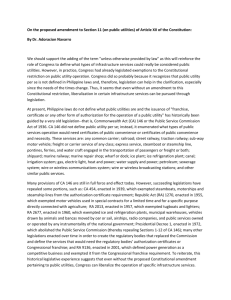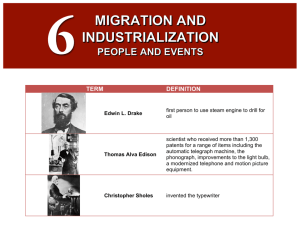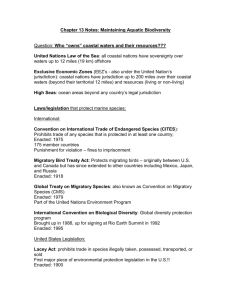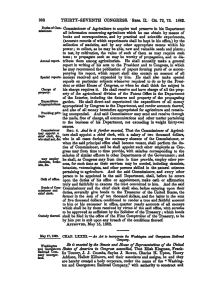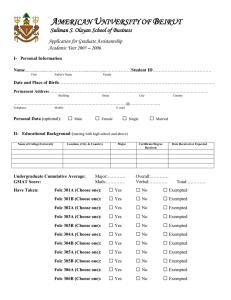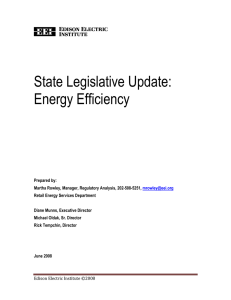On proposed amendment to Section 11 (on public utilities) of Article
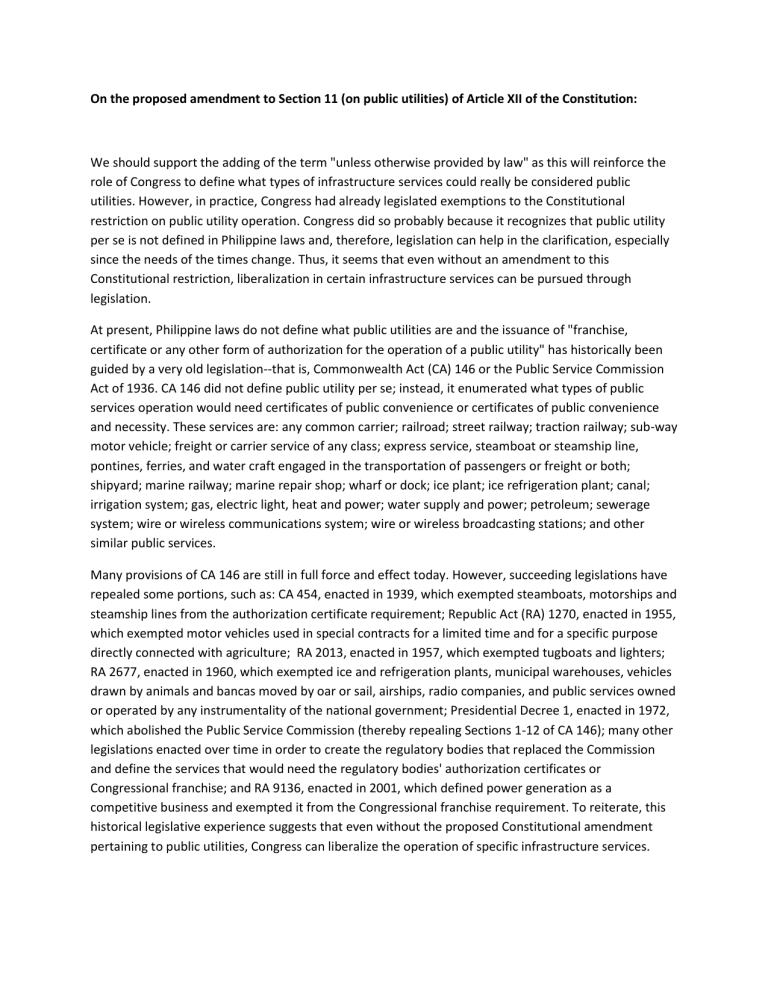
On the proposed amendment to Section 11 (on public utilities) of Article XII of the Constitution:
We should support the adding of the term "unless otherwise provided by law" as this will reinforce the role of Congress to define what types of infrastructure services could really be considered public utilities. However, in practice, Congress had already legislated exemptions to the Constitutional restriction on public utility operation. Congress did so probably because it recognizes that public utility per se is not defined in Philippine laws and, therefore, legislation can help in the clarification, especially since the needs of the times change. Thus, it seems that even without an amendment to this
Constitutional restriction, liberalization in certain infrastructure services can be pursued through legislation.
At present, Philippine laws do not define what public utilities are and the issuance of "franchise, certificate or any other form of authorization for the operation of a public utility" has historically been guided by a very old legislation--that is, Commonwealth Act (CA) 146 or the Public Service Commission
Act of 1936. CA 146 did not define public utility per se; instead, it enumerated what types of public services operation would need certificates of public convenience or certificates of public convenience and necessity. These services are: any common carrier; railroad; street railway; traction railway; sub-way motor vehicle; freight or carrier service of any class; express service, steamboat or steamship line, pontines, ferries, and water craft engaged in the transportation of passengers or freight or both; shipyard; marine railway; marine repair shop; wharf or dock; ice plant; ice refrigeration plant; canal; irrigation system; gas, electric light, heat and power; water supply and power; petroleum; sewerage system; wire or wireless communications system; wire or wireless broadcasting stations; and other similar public services.
Many provisions of CA 146 are still in full force and effect today. However, succeeding legislations have repealed some portions, such as: CA 454, enacted in 1939, which exempted steamboats, motorships and steamship lines from the authorization certificate requirement; Republic Act (RA) 1270, enacted in 1955, which exempted motor vehicles used in special contracts for a limited time and for a specific purpose directly connected with agriculture; RA 2013, enacted in 1957, which exempted tugboats and lighters;
RA 2677, enacted in 1960, which exempted ice and refrigeration plants, municipal warehouses, vehicles drawn by animals and bancas moved by oar or sail, airships, radio companies, and public services owned or operated by any instrumentality of the national government; Presidential Decree 1, enacted in 1972, which abolished the Public Service Commission (thereby repealing Sections 1-12 of CA 146); many other legislations enacted over time in order to create the regulatory bodies that replaced the Commission and define the services that would need the regulatory bodies' authorization certificates or
Congressional franchise; and RA 9136, enacted in 2001, which defined power generation as a competitive business and exempted it from the Congressional franchise requirement. To reiterate, this historical legislative experience suggests that even without the proposed Constitutional amendment pertaining to public utilities, Congress can liberalize the operation of specific infrastructure services.
